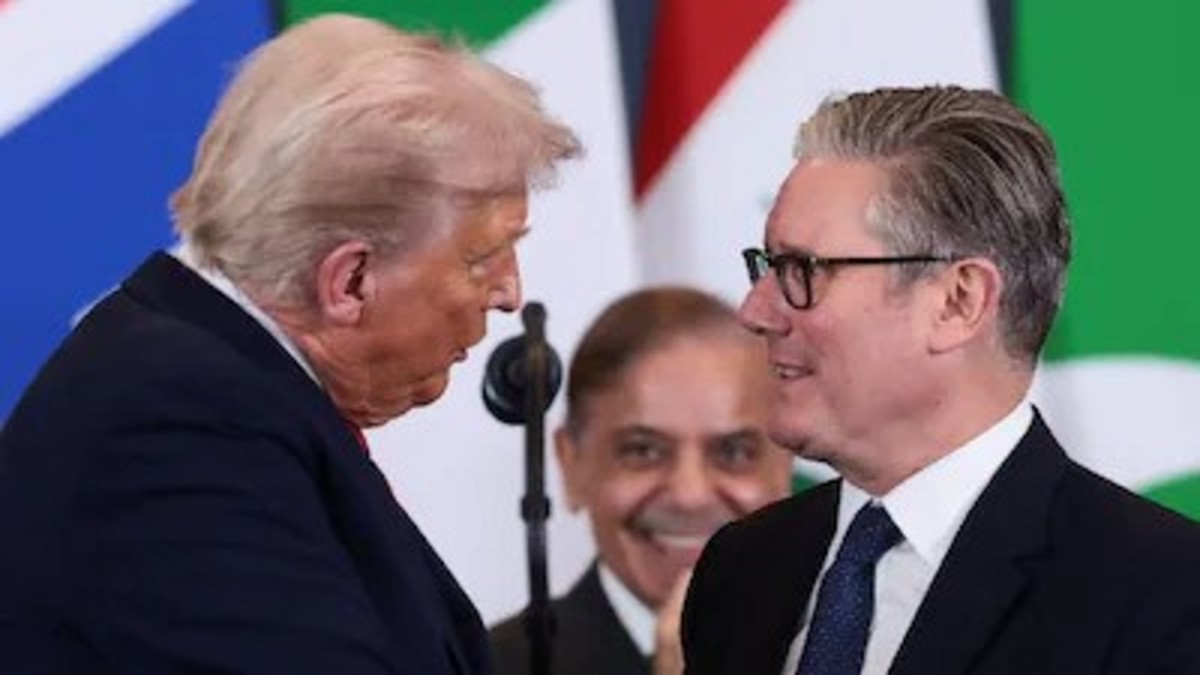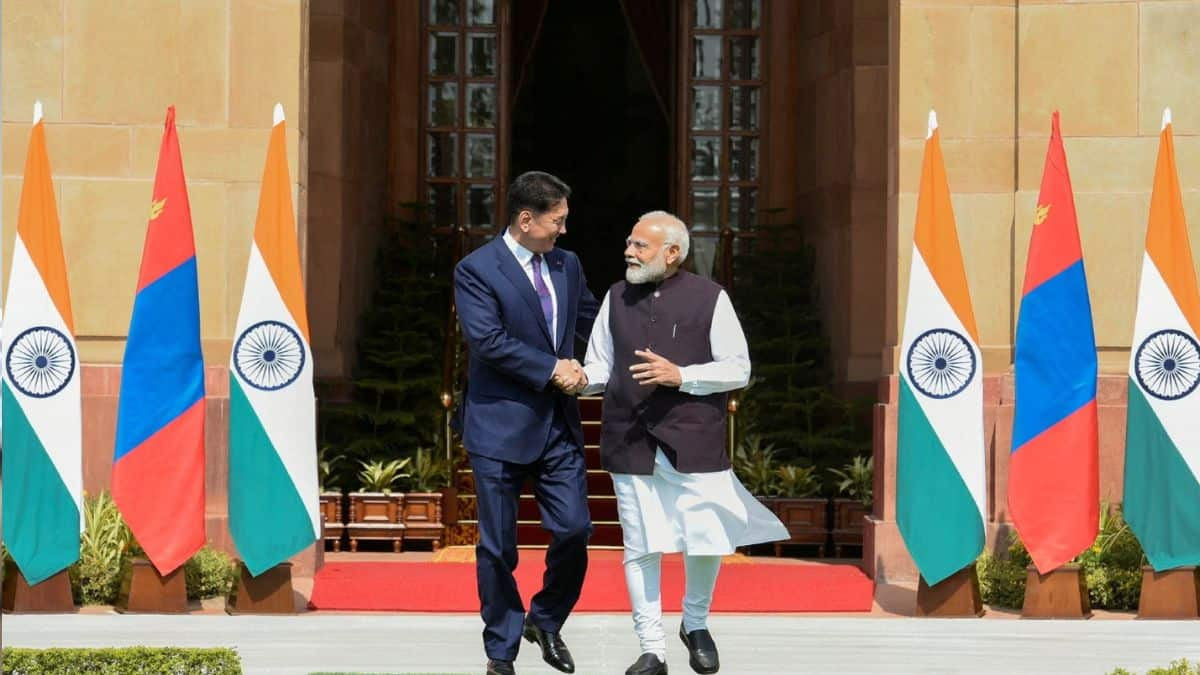When Shashi Tharoor speaks, one listens. His eloquence is rarely in question, and even when one disagrees, his reasoning commands respect. So, when he remarked that Prime Minister Narendra Modi’s decision to skip the Gaza peace summit at Sharm el-Sheikh, Egypt, was a “missed opportunity” for Bharat—given the “galaxy of grandees” in attendance there—his observation carried weight. After all, about 30 heads of state, including those from France, Britain and Italy, were in attendance. Tharoor concluded his statement by saying: “In a region reshaping itself, our relative absence is puzzling.”
At first glance, this assessment may seem valid. In the pre-January 2025 world order, before the Trumpian disruption of diplomacy, missing such a high-profile gathering might indeed have been considered a diplomatic misstep. But at a time when personal vanity and orchestrated optics define world diplomacy, Prime Minister Modi’s absence appears less like a strategic blunder and more like a diplomatic masterstroke.
The manual of global diplomacy seems to have been rewritten by Trump. Under his leadership, summits have become stages for spectacle rather than substance; they have turned into platforms for power projection and personal assertion. The recent Gaza summit in Egypt seemed no exception.
British Prime Minister Keir Starmer found himself at the receiving end of Trump’s signature brand of global diplomacy. “Where is the United Kingdom? Come here,” Trump said abruptly, mid-speech, beckoning Starmer like a headmaster summoning a student. The visibly startled Starmer obliged, only to be greeted with a perfunctory: “It’s very nice that you’re here.” Even before the British Prime Minister could say anything, Trump turned his back and resumed his address. Starmer was left part stunned, part embarrassed.
If a report from London’s Daily Mail is to be believed, “Italian Prime Minister Giorgia Meloni, standing over Trump’s right shoulder, appeared amused by the exchange, seemingly pulling a face.”
Impact Shorts
More ShortsThe only person, apart from Trump, who seemed to enjoy the attention was Pakistan Prime Minister Shehbaz Sharif.
In fact, when Trump was trying to locate Starmer with his disdainful comment—“Where is the United Kingdom?”—Sharif, ever eager to curry America’s favour, enthusiastically pointed out Starmer’s location to Trump—like a schoolboy assisting the teacher. “He is here… he is here.” Sharif kept saying till Trump could locate the visibly embarrassed Starmer.
It was a spectacle of submission, and Sharif seemed to revel in it. For a leader presiding over a nation that has lost all semblance of global esteem and personal self-respect, simply sharing the stage with the global elite was, perhaps, validation enough.
The Gaza summit also laid bare Western Europe’s fragile confidence. For decades, these nations, with the occasional exception of France, have leaned heavily on the US for its military and diplomatic strength, often punching above their weight under Nato’s protective umbrella. In the process, they unduly pushed to spread their area of influence at the cost of Russia.
All this worked well in the Cold War era and till the time the Cold War mentality thrived. But Trump’s arrival marked a breach. With the rationale of the US’s ideological animosity with Russia dwindling, especially with the rise of China as America’s main challenger, Western Europe’s Moscow-centric worldview became self-defeating. Western Europe created an enemy it just wasn’t capable enough to control on its own. This created undue dependence on the US—and thus the subservient, baron-like behaviour of European leaders in the midst of Emperor Trump.
Trump’s transactional worldview has no room for such ideological sentimentality and sensibilities. In this new order, alliances are measured not by shared values but by commercial utilities and visible obedience. The images from Sharm el-Sheikh—of European leaders deferring to Washington—spoke volumes. It is difficult to imagine such abject submission from Beijing, Moscow, or New Delhi.
In this context, Prime Minister Modi’s decision to stay away from the summit looks increasingly prudent. Bharat’s quiet confidence contrasted sharply with the performative diplomacy on display. The decision to skip seemed to have worked well, as Trump, from Sharm el-Sheikh, referred to Bharat as “a great nation” and called Modi “a very good friend”. It was a subtle acknowledgement of Bharat’s rising stature.
By skipping the event (Minister of State for External Affairs KV Singh represented Delhi at the Gaza summit), Modi also avoided multiple pitfalls. For one, sharing a stage with both Trump and Sharif could have led to an awkward “photo diplomacy” moment—an engineered handshake, perhaps, designed to bolster the US President’s self-styled image as a peacemaker. In the aftermath of Operation Sindoor, such optics would have handed Trump a propaganda victory and undermined Bharat’s firm position on bilateral issues with Pakistan.
Additionally, with ongoing trade negotiations between Delhi and Washington, it would have been unwise to expose delicate diplomacy to the volatility of a live Trump performance.
In this backdrop, Shashi Tharoor’s critique, though rooted in classical diplomacy, seems out of sync with Trumpian realities. By not attending the Gaza summit, Bharat avoided a diplomatic pitfall and projected self-assuredness—something which some of the most developed nations failed to exhibit. Prime Minister Modi’s absence spoke louder than any speech could have.
Views expressed in the above piece are personal and solely those of the author. They do not necessarily reflect Firstpost’s views.


)

)
)
)
)
)
)
)
)



